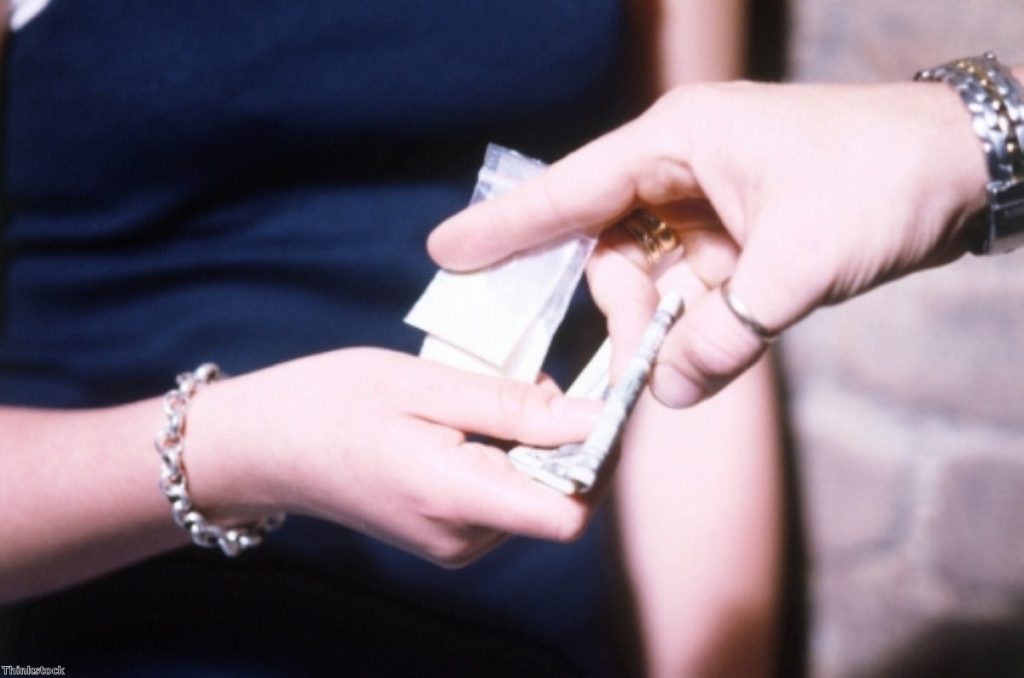Are we witnessing the tipping point in the drug debate?
We've never had it so good.
Those fighting for reform of Britain's drug laws can feel the ground moving beneath their feet. There is a sense that a tipping point is being reached, a critical mass of opposition, with influential advocates in the right place at the right time. Drug law reformers have a noticeable spring in their step.
Caroline Lucas' petition for a cost benefit analysis of the Misuse of Drugs Act 1971 passed the critical 100,000 mark this morning, triggering a review by the backbench business committee, which will decide whether it can be debated in the Commons. No legal change follows from this, but it's important that parliament no longer be insulated from the debate.
Lucas is a principled MP and she has pushed her case effectively, not least in harnessing Russell Brand's reach to galvanise support for the move.


He sent out an Avaaz email earlier this week calling on people to support the move. It contained his standard counter-productive rhetoric ("I believe contemporary democracy to be a meaningless charade") but he may have been responsible for getting the petition over the 100,000 mark.
"Prohibition is an idea that is dying, let's kill it now with unified defiance," he wrote, in a manner which was much more sensible than the paragraphs that preceded it.
Of course, we already know that no cost benefit analysis is possible, because the Home Office itself has admitted it.
As I reported last month, government documents show that officials have no idea at all whether the UK's draconian anti-drugs programme is working. "Little robust evidence of impact is available," they wrote in the easy-to-miss Drug Strategy 2010 Evaluation Framework.
That's what they have to show for themselves. That's what they have to show for billions spent, hundreds of thousands of young people's lives wasted in the criminal justice system for an act which should not be a crime, countless deaths from drugs which would be safer if they were regulated, the creation of international drug cartels with more funding and power than nation states and the senseless enforcement of failed state status across Latin America.
The force of the pro-reform argument is now so strong it is rare to hear anyone argue against it. And in fact hardly anyone outside the Home Office or tabloid columnists ever does.
Nick Clegg is backing a royal commission on international alternatives to prohibition. Barred by the Tories, he is forced to pursue an internal Lib Dem review. It might not sound like much, but it is a drug policy review conducted by a party in government, which is an achievement in itself. He has also installed reformer Norman Baker in the Home Office, although that didn't stop him announcing a upgrading of ketamine from Class C to Class B yesterday.
Nevertheless, Clegg is getting more vocal as he pursues his distancing strategy from the Tories ahead of 2015. The closer the election gets, the more substantial his cojones become.
The home affairs committee is pursuing a structured programme of pushing for a review of our drugs laws. Its demand for a royal commission offered UK reform activists a handy incremental, staging-post goal to aim towards.
Many senior political journalists – some from outlets you would not expect – are sympathetic to drug reform. Increasingly, their editors are too.
Even the prime minister is privately more sympathetic than he publicly lets on, although he does not have the bravery or conviction to say so.
Of the three mainstream party leaders, only Ed Miliband has no interest in drug reform, either publicly or privately. He is anomalous. Even Nigel Farage is more liberal and progressive than him on this issue.
Elder statesmen and business leaders are throwing their weight around, including former UN secretary general Kofi Annan and Virgin boss Richard Branson.
Internationally, the tide has well and truly turned, with Latin American leaders on right and left finally breaking ranks and making the case. In the west there is a drug problem. In Latin America there is an existential threat to the state, with criminal gangs becoming far more powerful and flexible than the government.
In Europe, the US and Latin America, experiments on various degrees of decriminalisation are being undertaken. They will mostly be successful.
There is a distinct sense that the wind is now blowing in our sails. Hopefully Lucas' petition will allow some of this debate to actually take place in parliament, rather than being locked outside.
Drug law reformers have won the argument. There is a growing sense that we could soon win the war.









